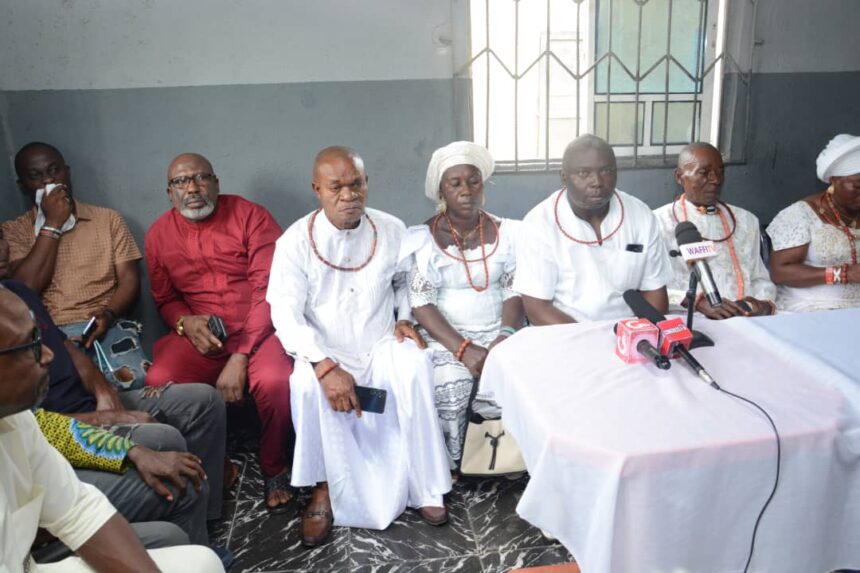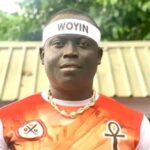The Ogbe-Ijoh (Ijaw) people wish to respond to the ongoing media campaigns and protests by the Itsekiri and their associates regarding the Independent National Electoral Commission’s (INEC) recent field report on electoral delineation in Warri Federal Constituency, Delta State. The misleading narrative suggesting that the Ogbe-Ijoh communities are not part of Warri South Local Government Area (LGA) is inaccurate and must be corrected.
At the heart of the matter is the Supreme Court’s directive for a fresh delineation of wards and polling units, a process that has once again affirmed the presence and historical significance of the Ijaw people in Warri South LGA. During the INEC stakeholders’ meetings, the issue of the Ogbe-Ijoh people’s inclusion was raised and addressed. The consensus, backed by intelligence reports, historical documents, physical presence, and existing polling units, established that the Ogbe-Ijoh communities are indeed part of Warri South LGA. Notably, even Itsekiri participants at those meetings acknowledged this fact.
On July 8, 2024, a stakeholders’ meeting involving representatives of the Ijaw, Itsekiri, and Urhobo ethnic groups was held at the Government House Annex in Warri. Following this, INEC deployed field officers to all respective ethnic areas, including the Ijaw communities of Bulou-Ama, Ewein, Ogbe-Ijoh Warri Urban, and parts of GRA. Only the officers assigned to Ijaw zones carried out fieldwork in these areas, as they are exclusively inhabited by the Ijaw people. It is therefore misleading to claim otherwise.
Historically, Ogbe-Ijoh is acknowledged as one of the earliest settlements in Warri Urban. Records dating as far back as 1955, under Western Region Law No. 177, clearly show that the Ijaw people were part of the Warri Urban District Council, with four autonomous electoral wards: Alders Town (B3), Ogbe-Ijoh (C1), Ogbe-Ijoh (C2), and Government Area (F1). This system remained until 1976 when local government reforms under the military regime led to the present administrative structure. These reforms, unfortunately, resulted in the fragmentation of Ijaw electoral wards, spreading them across various other wards and diminishing their political representation.
Since then, Ogbe-Ijoh communities have consistently petitioned for electoral justice, culminating in the landmark Supreme Court judgment of December 2, 2022, which upheld the Ijaw people’s position. Following this, INEC recognized and delineated the same communities previously defined in 1955, now renamed Bulou-Ama Ward 02, Ewein Ward 07, Ogbe-Ijoh Warri Urban Ward 12, and portions within GRA Ward 08.
The delineation is not a novel development but a long-overdue correction of historical injustice. Claims suggesting otherwise ignore legal precedents and traditional authority structures. For example, the Chiefs Law of 1957 (CAP 19) and subsequent legislation recognize the Amaokosu of Ogbe-Ijoh as the lawful authority over the Ogbe-Ijoh people and lands, excluding them from the jurisdiction of the Olu of Warri. This position was reaffirmed by the Court of Appeal in its judgment of June 5, 2023, in case CA/AS/441/2016.
Delta State laws further reinforce this position by recognizing four distinct traditional authorities within Warri Metropolis: the Olu of Warri (Itsekiri), the Orosuen of Okere-Urhobo (Urhobo), the Ovie of Agbarha (Agbassa), and the Amaokosu of Ogbe-Ijoh (Ijaw).
We commend INEC for its commitment to justice and transparency amid multiple legal challenges, particularly in ensuring fair representation of all ethnic nationalities in Warri South LGA. However, we emphasize that the Ogbe-Ijoh communities deserve more than three wards. Given that four wards existed as far back as 1955, it is only just that, in 2025, this number be increased.
Accordingly, we call on INEC to:
1. Create additional homogenous electoral wards for the Ijaws of Warri South.
2. Establish a distinct State Constituency for the Ijaws in Warri South, given that the Itsekiri and Urhobo already enjoy such representation.
These steps are necessary to ensure lasting peace, fairness, and balanced representation for all ethnic groups within Warri South LGA.
Signed:
Hon. Denbo-Denbofa Oweikpodor
(Ijaw Focal Person)
Chief M. Keme
Comrade Moses Fiyebor




